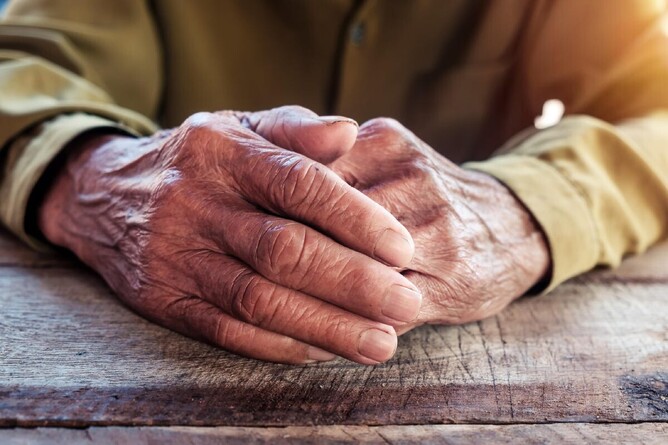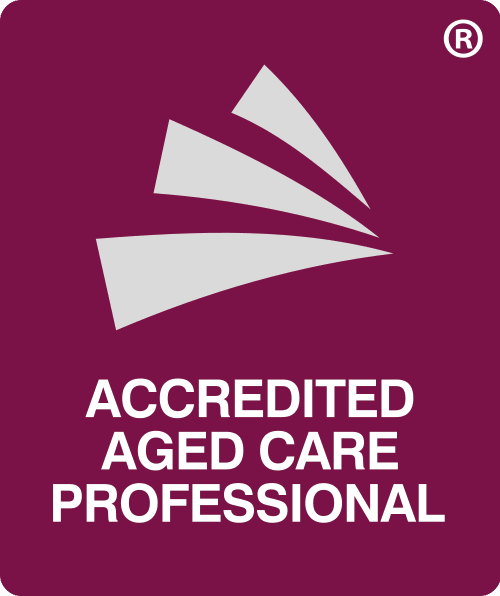The 15th June 2022 was World Elder Abuse Awareness Day.
This day was first established in 2006 by the International Network for the Prevention of Elder Abuse and has been commemorated on 15 June each year since. It was officially recognised by the United Nationals General Assembly in 2011.
The aim is to highlight and eliminate abuse against older people. Abuse can come in the form of physical, psychological, sexual, abandonment, rights and financial abuse or neglect.
Elder abuse is a global issue that affects millions of older people. The World Health Organisation (WHO) estimates that one in six people over age 60 have suffered abuse. However, much abuse goes unreported or unnoticed and only one-third of those impacted seek help. The alleged perpetrators are usually family and close friends, and often those who hold a power of attorney.
The most prevalent forms of abuse are financial abuse and neglect. Older clients may be experiencing some frailty and increasing dependency on others. The best prevention measures are education and awareness.
Have any types of elder abuse ever affected you or anyone you know? Have you ever suspected that you or a vulnerable senior in your life might be suffering from neglect or mistreatment? Do you feel conflicted, afraid, embarrassed, or unsure of what to do about it?
Unfortunately, the warning signs of abuse are often missed, ignored, or rationalised away—even by well-meaning people. In fact, it's likely that most cases of elder mistreatment go unreported.
What are the signs of Elder Abuse or Neglect?
Financial exploitation
- Unusual spending habits, especially for unnecessary products or services
- Confusing bank transactions, including unexplainable transfers or withdrawals
- Missing bank statements or other financial documents
- A large amount of unopened mail or sweepstakes offers
- Unpaid bills or warning letters from creditors or utility companies
- A new "friend" who offers to provide low- or no-cost care
- Missing property or personal possessions
- Suspicious legal documents related to asset control or powers of attorney
- Signatures on documents that look like they were forged or made under duress
- Confusion about recent financial arrangements
- A reduced level of care despite the ability to pay for better service
Neglect
- Rapid or unexpected weight loss
- A sudden decrease in appetite
- Dehydration
- Unexpected breathing problems
- Dirty or inappropriate clothing
- Lack of personal hygiene
- Frequent skin rashes
- Untreated injuries or infections
- Bedsores
- Expired prescriptions
- Faster-than-expected health decline
- Lack of assistive devices
- Missing or broken eyeglasses, dentures, or hearing aids
- Filthy or unsafe living conditions
- Pest infestations
- Lack of attention to needed repairs
- Uncharacteristic confusion, despair, social withdrawal, or sleeping problems
Emotional abuse
- Heightened fear or agitation when around a particular person
- Greater-than-expected weight gain or loss
- New or worsening depression or social anxiety
- Significant personality changes
- Uncharacteristic disorientation or confusion
- Strange behaviours like rocking back and forth, sucking a thumb, or biting oneself
- Blood pressure that's consistently higher than what would be expected
- New or worsening sleep problems
Physical abuse
- Bruises or abrasions that wrap around the person's wrists, arms, ankles, legs, or torso
- Bruises that are in the same places on both sides of the body
- Bruises that are multi-coloured
- Cigarette burns
- Other unexplainable burns, bruises, abrasions, or scars
- Frequent sprains or bone fractures
- Unusual bleeding
- Broken dentures or eyeglasses
- Unexpected tooth loss
- Strange hair loss in just one small part of the head
- Frequent hospitalizations for the same types of injury
- Injuries that haven't been treated right away
- Changing stories or excuses that don't make sense
- Suspicious patterns of medical treatment (such as getting treated at a variety of different facilities for no clear or credible reason)
Sexual abuse
- Groin or inner-thigh bruises
- Pain, irritation, or unusual bleeding in the buttocks or genital area
- Bruises or cuts around the breasts
- Unexplained infections such as sexually transmitted diseases (STDs)
- Bloodied, stained, or ripped clothing, especially underwear
- Uncharacteristic behaviour of a sexual nature
It's also important to know what to look for in the behaviour of potential abusers. People who abuse or neglect seniors may:
- Refuse or try to delay visitations or social activities
- Unfairly criticize or express frequent frustration with family members or care providers
- Resist outside assistance
- Display little or no kindness, compassion, or affection
- Act excessively or inappropriately affectionate
- Show poor caregiving abilities
- Claim that care is adequate when it clearly needs to improve
- Complain of exhaustion
- Get angry easily
- Change the stories they tell about the same incidents
- Make seemingly out-of-context excuses
- Abuse drugs or alcohol
If you are acting as an Enduring Power of Attorney (EPoA) or Guardian (EPoG) you need to ensure EVERY transaction is in the best interest of the donor.
If you encounter issues of potential elder abuse you can contact the national ELDERHelp line on 1800 353374 for guidance.
Factual Advice Warning: Any information provided in this website is purely factual in nature and does not take into account your personal objectives, situation or needs. The information is objectively ascertainable and is not intended to imply any recommendation or opinion. This does not constitute financial product advice under the Corporations Act 2001 (Cth).


